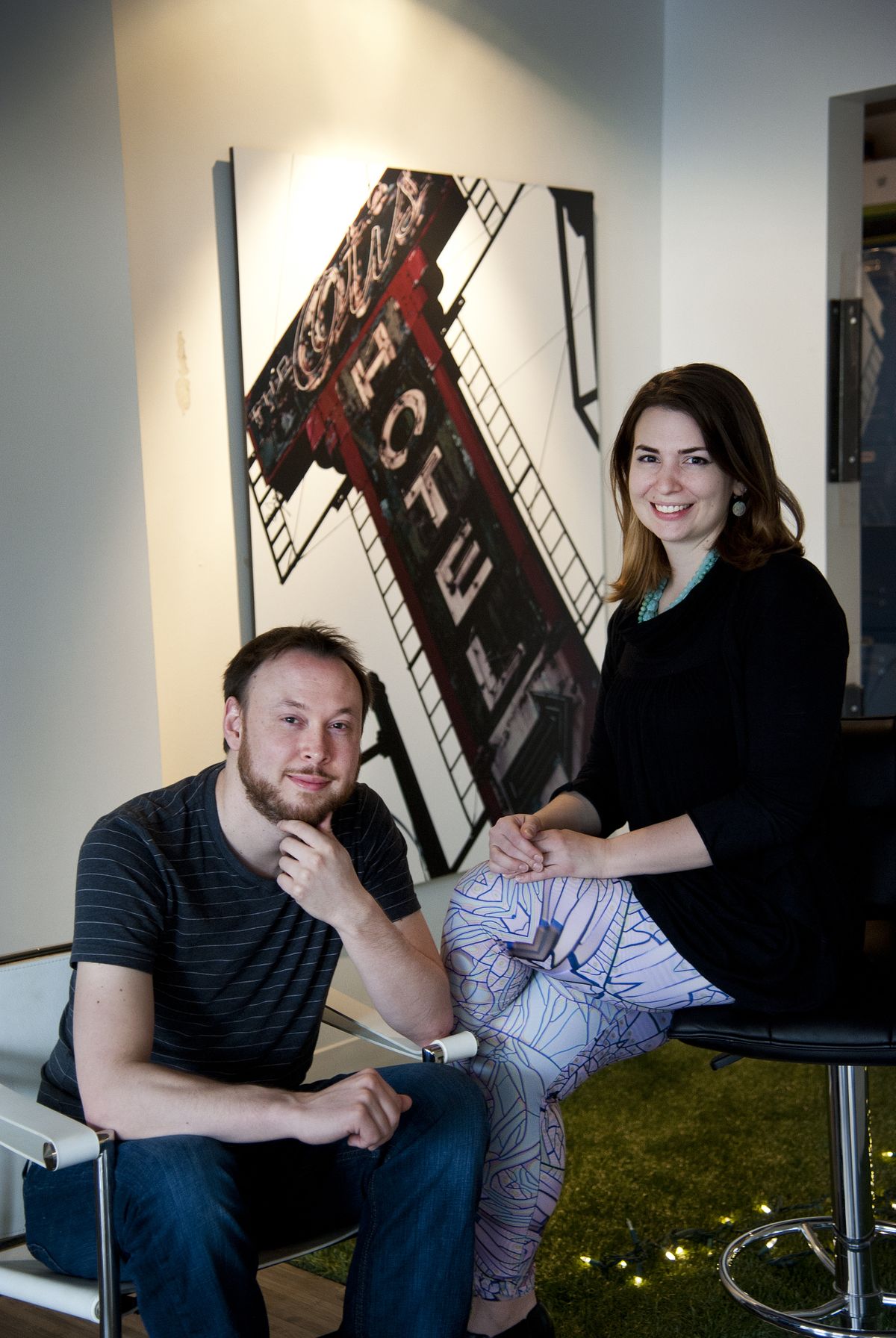‘Ebola Attack’ creators make a mobile game for good

Lance Hughes and Anna Czoski hope their viral video game goes viral.
The pair created “Ebola Attack,” a game for smartphones and tablets that tasks players with saving organs from the sinister virus. It all came together during a 24-hour development marathon last October in Spokane.
They realized quickly they had the makings of a blockbuster mobile game and have spent the past few weeks refining the experience and putting together a Kickstarter campaign to push the game to a broader audience.
The effort is about more than sales. All proceeds from the paid version of the game will go to charities working to stop the Ebola outbreak in West Africa that has killed almost 9,000 people since March, according to the World Health Organization.
“I’ve made a lot of games that were just fun,” said Hughes, whose résumé includes a stint with Xbox Live and development of the popular mobile games “Magic Fingers” and “Robot Unicorn Attack.”
“People played them, but they didn’t make a real difference in the world,” he said.
Enter Czoski, who responded to a Craigslist advertisement Hughes posted looking for a digital artist to help him with projects. Hughes’ income from “Magic Fingers” allowed him to move back to Spokane, his hometown, and work closely with Czoski, who had previously worked at a company called Firsthand Technology on what are called “serious games” – titles designed with more than entertainment in mind.
“The fact that your goal in the game, and the goal of the overall game project is the same – is to help people, to save lives – is really important,” Czoski said.
“Ebola Attack” didn’t begin with that goal. Hughes was trying to find a use for what is called a “flock algorithm,” a type of math that causes objects on a screen to move fluidly as a pack. The game originally had the player attacking cells in the body as the virus, but the idea wasn’t technically sound, nor did it fit with the theme of the SpoCode hackathon, an annual meet-up of area programmers whose stated goal is to use their powers for good. But Czoski had the idea to fit Hughes’ design into the serious game genre by making a white blood cell the hero.
Dan Gayle, one of the organizers of SpoCode and an online developer for The Spokesman-Review, said “Ebola Attack” is exactly the kind of project the group was created to tackle.
“The fact that we got an actual game out of it, and that it’s fun and can actually help people, that fulfills the purpose of why we even exist,” Gayle said.
Progressing through the game’s levels involves saving a certain number of red blood cells from infection by indestructible Ebola virus cells, then distracting the virus so that the virus-free red blood cells can escape. Players move the white blood cell across the screen by tilting their smartphone or using an on-screen joystick.
Hughes describes it as a “cat-and-mouse game” and says the feature of the virus cells chasing the player makes the game unique.
“It’s a hard game, but it’s also pretty intuitive,” Hughes said.
The look and mechanics of the game don’t exactly match how Ebola attacks the body. Czoski began with an actual Ebola cell as a blueprint, but decided to go with a spiky look for the evil cells compared to the long, stringy look of actual Ebola. And the virus doesn’t attack red blood cells at first, but actually goes after a select set of white blood cells known as “T” cells and later tissue and organs.
The design decisions were made with playability – not science – in mind, Hughes said.
“In game development, realism is not always the most fun,” he said.
The pair already have a functioning version of the game, complete with a techno-inspired soundtrack and sound effects that simulate slot machines. The first 100 contributors to the Kickstarter campaign, which seeks $5,500 to market the title on the iTunes App store, Google Play store and elsewhere, will have access to an early version of the game. A full release is expected in late March, Hughes said.
Other incentives for contributing include getting your name in the credits, laser-cut pendants of Czoski’s artwork and a custom-made T-shirt.
The Kickstarter campaign ends March 6, when Czoski and Hughes will receive their marketing money if enough people contribute, or no money at all. Hughes also said contributions will pay Czoski, who’s yet to receive any money for her work on the game.
Czoski hopes the Kickstarter campaign will push the idea to a broader audience, some of whom may have forgotten that Ebola continues to devastate communities in Guinea, Liberia and Sierra Leone.
“We’re really hoping the audience will grow,” she said.